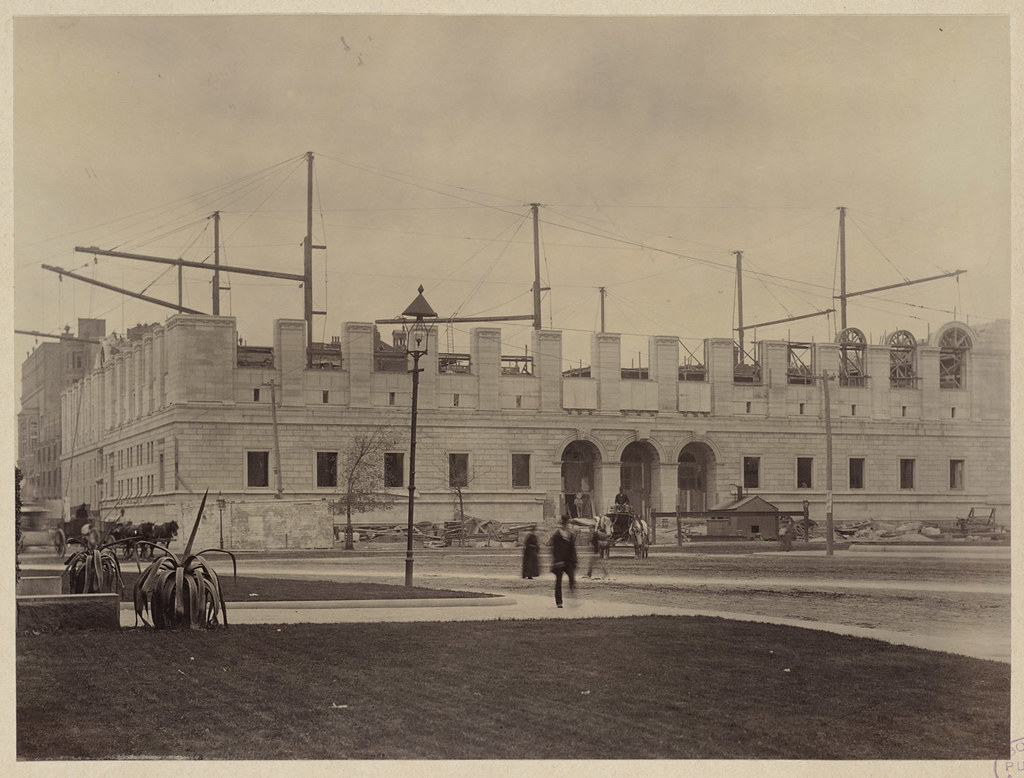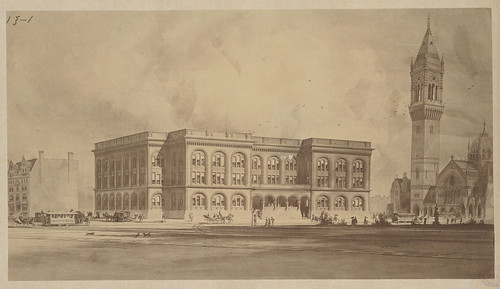I can understand why Boston 1950's/60's urban renewal took the pattern that it did. Concepts that had taken root during the Great Depression with construction of large superblock public housing projects and Robert Moses' expressway system in NYC were applied in full force in the laying out of the old Central Artery, the Government Center, Charles River Park, NY City Streets project, as well as the aborted NASA center at Kendall Sq. in Cambridge.
These concepts included:
- The "superblock" concept, with wide streets on a super grid, large buildings set back from the wide streets with large plazas, and very little mixed use in individual buildings.
- A robust expressway system, a city-wide system of wide major arterials, large parking garages in the city center, and a diminished transit system.
- Huge areas of poorly located open space and "park" land.
- Pedestrians poorly accommodated.
- Transit lines rerouted to serve suburban commuters at the expense of serving inner city areas (i.e. Charlestown, the South End and Roxbury).
I'm also thinking that the leveling of European cities during WWII provided some of the inspiration for the "wipe the slate clean" mentality of post WWII urban renewal in Boston.
My wish is that there could have instead been another model followed, wherein the old street grid and most of the existing buildings would have been retained, and a more targeted infusion of new buildings - low, mid, and high rise - on a tight density replacing unsalvageable buildings and introducing height and capacity where appropriate. Pocket parks could also have been added within the existing urban fabric without impacting density and urban feel.
Looking at how European cities infilled their areas cleared by bombing during WWII, they took much more this approach than the one Boston took. They re-created dense, diverse and urban neighborhoods, and generally did not follow the "high-rise in the park" concept that Boston adopted.
I think Boston could have become just as prosperous as it is today if it had redeveloped in the 1950's and 60's using a high density, selective approach to redevelopment, rather than replacement of huge areas of the center city with suburban type development.





